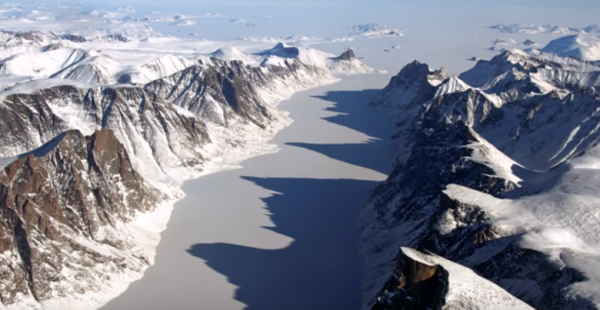By Jayson Boral, | January 21, 2016

Anthropogenic carbon emissions are likely to have delayed Earth’s ice age by next 100,000 years.
Anthropogenic carbon emissions are likely to have delayed Earth's ice age by next 100,000 years, a scientific study by Postdam Institute for Climate Impact Research has revealed.
The study was published in journal Nature and has elicited concerns over the fact that human-made climate change has the ability to interfere with planet's glacial cycles. This study was based on an earth system model of carbon cycle, ice sheets, atmosphere and ocean. It laid particular stress upon analyzing effects of anthropogenic carbon emissions on ice volume in Northern Hemisphere.
Like Us on Facebook
Elaborating further on this issue, Tech Times reported that scientists connected with the study mentioned that the next glacial age is expected in 50,000 years from now. This expected date does not take into account the present level of climate change.
Lead author of this study, Andrey Ganopolski, mentions that any carbon emission, however moderate it may be, has the potential to further delay the next ice age by additional 50,000 years. Ganopolski finds it "mind-boggling" that mankind had the skill to interfere with nature to such an extent.
This study concludes that past and present carbon dioxide emissions have had a major bearing on the timings of future glacial periods. Speaking to Science World Report, co-author of the study Ricarda Winkelmann mentions that moderate future human-driven CO2 emissions of 1000 to 1500 gigatons was likely to postpone ice age by 100,000 years.
According to Science World Report, this study is a first of its kind. It examines last eight ice ages and factors that lead to each of those glacial cycles. In their study, scientists drew a connection between atmospheric carbon dioxide at onset of massive ice sheet growth and summer insolation. This connection shall help researchers while studying past glacial cycles and predicting future ones.
Watch the video below:
-
Use of Coronavirus Pandemic Drones Raises Privacy Concerns: Drones Spread Fear, Local Officials Say

-
Coronavirus Hampers The Delivery Of Lockheed Martin F-35 Stealth Fighters For 2020

-
Instagram Speeds Up Plans to Add Account Memorialization Feature Due to COVID-19 Deaths

-
NASA: Perseverance Plans to Bring 'Mars Rock' to Earth in 2031

-
600 Dead And 3,000 In The Hospital as Iranians Believed Drinking High-Concentrations of Alcohol Can Cure The Coronavirus

-
600 Dead And 3,000 In The Hospital as Iranians Believed Drinking High-Concentrations of Alcohol Can Cure The Coronavirus

-
COVID-19: Doctors, Nurses Use Virtual Reality to Learn New Skills in Treating Coronavirus Patients







